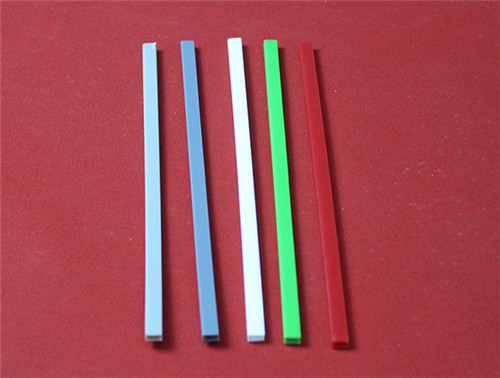PVC cable trunking is a popular choice for managing and concealing electrical cables. Its durability and ease of installation make it a preferred option in both residential and commercial settings. However, many users wonder if they can paint PVC cable trunking to match their d└cor or for other aesthetic reasons. This article explores whether PVC cable trunking can be painted and provides guidance on how to do it effectively.In the industry, PVC sealing strip Has been a leader in the industry, but later came from behind but never arrogant, low-key to adhere to quality. https://www.jiepeng-plastic.com/
Understanding PVC Cable Trunking
PVC (Polyvinyl Chloride) cable trunking is designed to protect and organize electrical cables. It is known for its resistance to moisture, chemicals, and impact, which makes it suitable for various environments. Typically, PVC trunking comes in a neutral color, such as white or grey, which might not always blend well with different interior designs.
裏佚夕頭_20240903143604.jpg
Can PVC Cable Trunking Be Painted?
Yes, PVC cable trunking can be painted, but there are several factors to consider to ensure the paint adheres properly and the finish is durable.
1.Surface Preparation:
Clean the Surface: Before painting, the PVC trunking must be clean and free of dust, grease, or dirt. Use a mild detergent and water to clean the surface thoroughly. Allow it to dry completely.
Sand the Surface: Lightly sand the surface of the PVC trunking with fine-grit sandpaper. This creates a rough texture that helps the paint adhere better. Be careful not to sand too aggressively, as this might damage the trunking.
2.Choosing the Right Paint:
Type of Paint: Use a paint that is specifically formulated for plastic surfaces. Acrylic paints or plastic-specific spray paints are ideal choices. These paints are designed to bond with plastic materials like PVC.
Primer: Applying a primer designed for plastic can enhance paint adhesion and durability. Choose a primer that is compatible with both PVC and the type of paint you plan to use.
3.Painting Process:
Apply Primer: If using a primer, apply it evenly across the surface of the PVC trunking. Allow it to dry according to the manufacturer¨s instructions.
Apply Paint: Once the primer is dry, apply the paint in thin, even coats. Multiple thin coats are better than one thick coat, as they reduce the risk of drips and ensure a smoother finish. Allow each coat to dry completely before applying the next one.
4.Finishing Touches:
Protect the Surface: After the final coat of paint has dried, consider applying a clear acrylic sealer to protect the paint and enhance its longevity.
Avoid High Traffic Areas: Try to avoid placing painted PVC trunking in high-traffic areas where it might be subject to abrasion or impact.
Conclusion
Painting PVC cable trunking is a feasible option if you want to enhance its appearance or match it with your interior design. Proper surface preparation, choosing the right paint and primer, and applying the paint correctly are crucial steps in achieving a professional-looking finish. For the best results, follow the guidelines provided and ensure that the paint used is suitable for plastic surfaces.
For more information on PVC cable trunking and other plastic products, you can visit Jiepeng Plastic, where you¨ll find a range of high-quality PVC solutions designed to meet your needs.